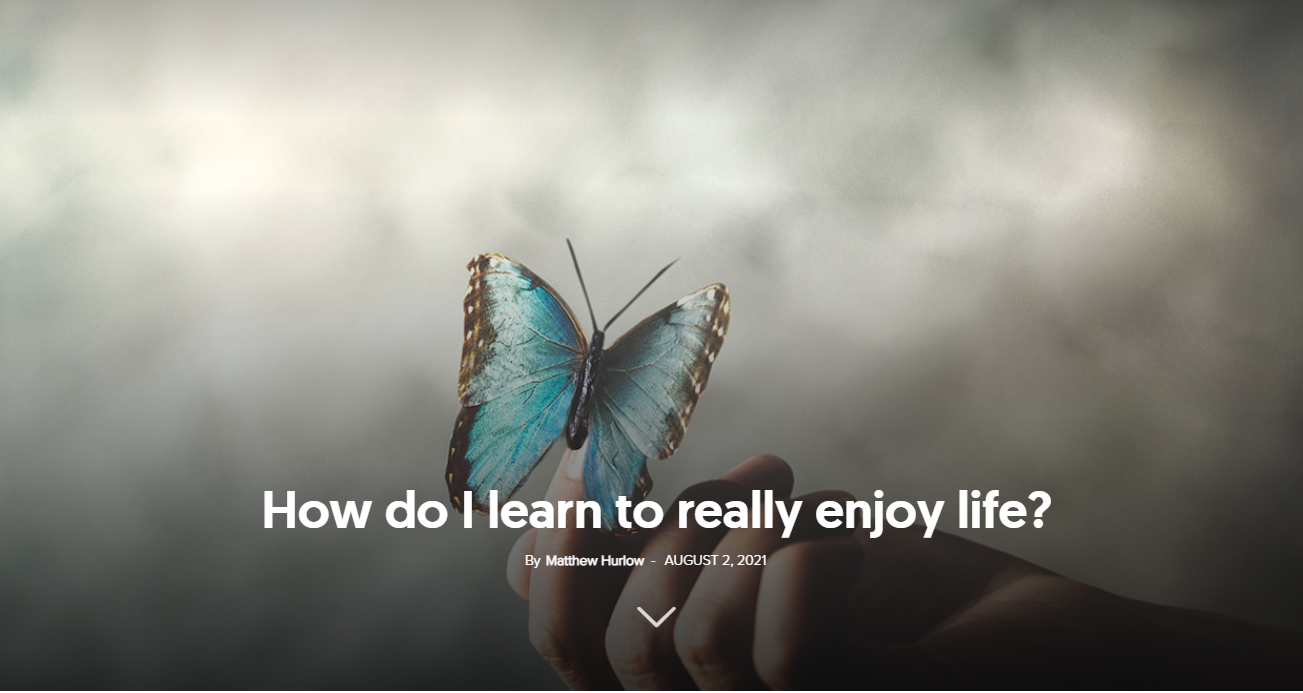In those times when grief accompanies us and we find ourselves alone in the middle of the night, does God shed tears with us?
When we were children, crying acted as a universal code, translating every discomfort, need or fear into an unmistakable language. But as we grew up, we began to see crying, especially in public, as a vulnerability, an unnecessary display that exposed us to the contempt of the world.
I was standing victoriously on a big haystack. Back then, I used to soak up the beauty of summer through every pore. I would run and climb and play in every corner of the garden. I’d discovered a plywood board leaning against the side of the haystack, a perfect ramp for a 7-year-old boy’s adventures. I slid down the board from the top of the pile a few times, but on one of the descents my foot caught on something and I landed with my hand on a rock, which I hadn’t noticed until the moment of impact. I felt an intense pain shooting down my forearm. I began to cry uncontrollably and loudly, and my crying acted as a physical pain relief mechanism. My parents ran to me, calmed me down and took me to the hospital. I had broken my arm.
But crying is more than a response to physical pain. It is also an indication of the intensity of our inner states, a barometer of the soul and a valve that allows us to release stress and emotional pain.
Disappointed in God
Two decades into my life, the horizon of possibilities seemed limitless. With youthful optimism, I believed that my potential needed no fixed direction; anything was possible, every path was open. It was a sense of invincibility born of the conviction that time, generously given, would allow me to explore every peak of my aspirations.
The video games of my teenage years had created an illusion of continuity, a kind of perpetual chance to start again. Every mistake, every failure seemed like a temporary setback, something I could correct with a simple restart. But soon I was forced to face the reality of the relentlessness of time and the irreversible consequences of my choices.
While my student years brought me real benefits, helping me to discover the wonders of the world through culture and art, they also plunged me into a sea of disappointment and profound disillusionment. In those moments I waited for an answer, a sign, a clue from God. But not even the slightest whisper was heard. I was disappointed by God’s deafening silence and felt it as an absence—at least of His empathy or interest in me. Although I had heard the words “God doesn’t care” over and over again, I had been reluctant to say them. Until…
My relationship with God evolved like a winding path, with exhilarating highs and mysterious lows. There were times when I was completely filled with faith, and others when questions remained unanswered. I devoured biographies of people who had such revelatory encounters with God that their lives were radically transformed and filled with meaning. In my case, the spectacular epiphanies seemed to be missing; it was as if my spiritual journey was unfolding at a gruelling, moderate, mediocre pace. Until I found Him.
The discovery
I was on stage; I was singing. I watched the silhouettes in the audience, interrupted by the beams of the spotlights, and thought about the depth of the lyrics I was integrating into the harmonies. As my eyes moved from one side of the room to the other, I began to see everything bending. But I didn’t panic. I thought I simply had a speck of dust or an eyelash in my eye. I continued to sing and blink excessively, but my vision did not improve. I thought it was my contact lens and that if I took it out it would go back to normal. But nothing helped. Everything I looked at with my right eye had a wavy or circular appearance.
At the optician I was given the diagnosis I never wanted to hear: retinal detachment, with a recommendation for emergency surgery. I was 24 and on the verge of losing sight in my right eye. When I realised the implications, I blacked out for a few moments. When I came to, I was sweating profusely and couldn’t stand on my own. Until the day of the operation, I cried, prayed and made many offerings to God in exchange for the miraculous healing.
The night before the operation, after a strenuous mountain climb, I was filled with a restful silence. As I searched for a Bible promise to help me sleep, I remembered the Bible verses I had learned with my dad in primary school. I remembered the shortest Bible verse that our whole children’s group at church had learnt, because they wanted to add another verse to our list of memorised Bible verses: “Jesus wept” (John 11:35).
I thought about this verse a lot that night. Why did Jesus cry when He knew He was going to do a miracle and raise Lazarus from the dead? I found the answer in Jesus’s own words: “…for your sake I am glad I was not there, so that you may believe” (John 11:15). Years before, I’d been angry with God for letting me fall, disappointed that He hadn’t answered some of my prayers. I had suspected Him of neglect or indifference. But now I understood that although God had the power to avoid suffering, He chose to suffer with us to help us grow spiritually and to understand more deeply His nature and intentions.
The next morning I went with my family to the operating room and I was filled with fear. Although I had peace of mind, my imagination (anticipating what might happen to me on the operating table) caused me to black out again. The operation went well, but as my retina was in an advanced stage of detachment, I needed a second operation six months later. Although I walked into the clinic much more confident, all it took was seeing the front door and the dark thoughts came flooding back. I crumpled, again unconscious. I had developed an acute fear of my problem.
No matter how brave I am in other areas, there are still issues that make my heart race… But I just have to remind myself that God is in control, that He has chosen to suffer with me and sustain me, and then I know that no matter how my body reacts to the stress, all will be well. Although the fear can be overwhelming, faith reminds me that I am not alone.
Things I wish I had known in my 20s:
|
Jesus still weeps today
Four days after Lazarus was laid in the tomb, Jesus stood with Martha and Mary. Although He knew that He would soon turn their sorrow into joy, He wept with them, moved by their deep grief. That’s because He doesn’t just see our pain, He feels it.
So when you feel the world crumbling around you and the pain overwhelming you, remember that Jesus is crying with you! He understands your suffering better than anyone and offers you His support.
Pain is inevitable in our lives, but more powerful than the oppression of pain is the comfort of Jesus. If we, in our imperfections, can offer comfort to those who suffer and weep with those who weep, then the One who created us and knows us intimately can do so much more.
There is a story of a man who looked back on his life and saw two sets of footprints in the sand, representing him and Jesus walking together. But in his worst moments he only noticed one set of footprints. Disappointed, he asked Jesus why He had left him when he needed Him the most. With a loving gaze, Jesus replied, “Those footsteps you see are mine. I did not leave you in those moments. I was carrying you in my arms.”
Flaviu Tereșneu wishes he had understood earlier that God’s love is fully manifested in the difficult moments of life.




















